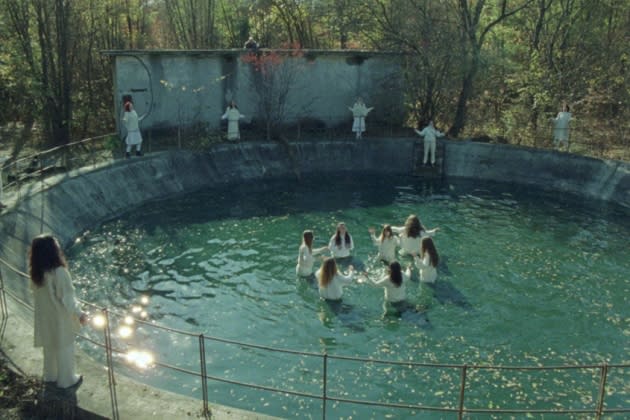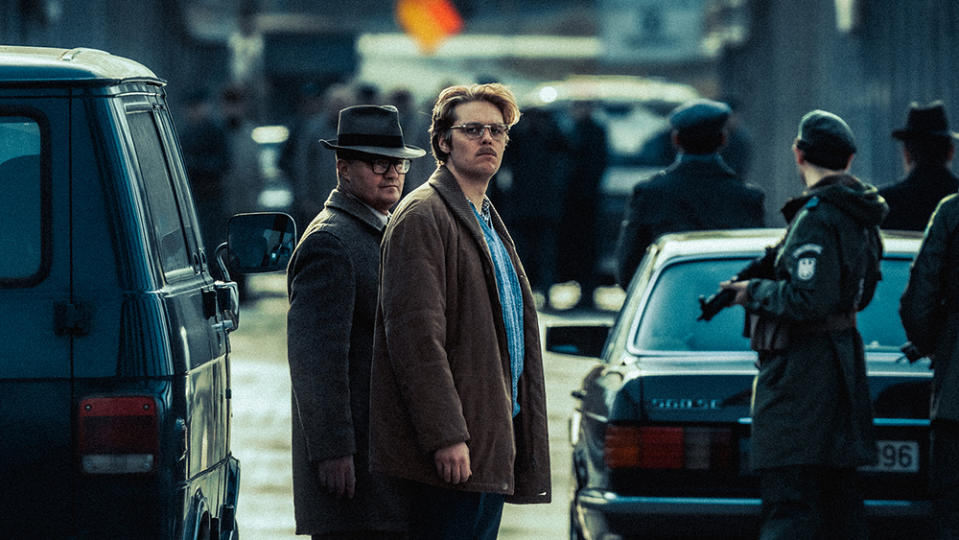Poland Opens More Screen Doors to Global Partners

The Polish film industry is embracing variety and high-profile international collaborations, with a slew of new co-productions already generating buzz among buyers and festival programmers. “More and more established filmmakers, who used to look for collaborators in Romania or Hungary, are now coming to Poland — mostly because we are backed by concrete institutions and because there is money,” says producer Klaudia Śmieja-Rostworowska of Madants, heading to Berlinale’s European Film Market with “Ultima Thule” and Goran Stolevski’s “Housekeeping for Beginners.”
“Our crews speak English and work abroad. We are visible internationally,” she adds.
More from Variety
Petit Film boards 'Hot Spot' by 'The Silent Twins' Director Agnieszka Smoczyńska (EXCLUSIVE)
Lithuanian Comedy 'Parade' Set for Polish Remake From Gigant Films (EXCLUSIVE)
Madants is also behind James Napier Robertson’s upcoming Polish-Kiwi title “Joika,” one of six international co-productions backed by the Polish Film Institute in 2022. The shingle’s slate includes Małgorzata Szumowska and Michał Englert’s “Let Me Out” and Agnieszka Smoczyńska’s follow-up to “The Silent Twins,” “Hot Spot.”
“Foreign producers and buyers are actively looking out for new projects by these [established] filmmakers. The scope of our co-productions has increased and we are opening up for new regions,” adds Weronika Czołnowska, head of industry at Poland’s New Horizons Film Festival. Mentioning the likes of “Pierce,” teased as the first-ever co-production between Poland, Singapore and Taiwan.
“There is a huge interest in working with Poland. In the past, it wasn’t always the case,” says Czołnowska.
As for upcoming films, Warsaw Film Festival’s Stefan Laudyn singles out Sławomir Fabicki’s “Anxiety” (Poland, Germany and Switzerland), while Paweł Pawlikowski’s regular collaborator Ewa Puszczyńska of Extreme Emotions is set to pique interest with minority co-production “Mammalia,” a “surreal trip through the crisis of manhood” by Sebastian Mihăilescu.
But all eyes are also on Jonathan Glazer’s Holocaust-themed “The Zone of Interest.” Shot entirely in Poland and his first since “Under the Skin,” it’s finally set to premiere this year.
“The A-list is not afraid of Poland anymore. We are actively making these connections as well, but it’s no longer one-sided,” says Puszczyńska. “People noticed that we know what we are doing. Everyone is looking for money, cheaper locations, and our country can stand in for Berlin, like in Spielberg’s ‘Bridge of Spies’ or for that ‘Parisian’ street in ‘Cold War.’” She also cites the benefits of the Polish cash rebate system.
With Pawlikowski at work on “Island,” starring Joaquin Phoenix and Rooney Mara, and set to start shooting in May, “Cold War” breakout Joanna Kulig will open the German fest with Rebecca Miller’s “She Came to Me,” alongside Peter Dinklage and Anne Hathaway.
“We keep talking about emotions in films, but we can’t forget about the form either, about innovation. Thanks to Paweł’s ‘Ida,’ we got our foot in the door and we are not planning to close it,” notes Puszczyńska.
With Polish Film Institute backing such micro-budget productions as sci-fi fantasy “All Hope in Them” by Piotr Biedroń, a rare jump into genre filmmaking, or period thriller “Doppelgänger” with past Berlinale Shooting Star Jakub Gierszał, fiction films embrace variety.

“I love genre cinema. Everything I have made so far falls into that box, or at least a mix of it. Being able to reconstruct yesterday’s world through costume and set design is exciting to me,” says director Jan Holoubek, also behind the well-received “25 Years of Innocence.”
Documentary filmmakers, however, are focusing on the present, and current political unrest, as local industry players keep on speaking out against Russia’s invasion of Ukraine.
“I couldn’t just grab the camera and shoot. At first, I was crying every time I was crossing the border,” says Piotr Pawlus about his Forum title “In Ukraine,” co-directed by Tomasz Wolski.
“We are showing war without war,” adds the latter. “Our film is based on static shots, on observation. We talk about daily lives of [Ukrainian] people, of how they are trying to cope.”
In the same section, Alisa Kovalenko’s “We Will Not Fade Away” (co-produced by Katarzyna Kuczyńska and Tomasz Morawski of Haka Films) shows Ukrainian teens dreaming of a once-in-a-lifetime journey, with Kuczyńska praising the “tenacity” of their young heroes, trying to see the world outside Donbas.
Conflicts will be present also in Vita Maria Drygas’ “Danger Zone,” sold by Dogwoof, which tackles “war tourism” and people looking for a whole different thrill, or at least frontline selfie.
“I came across this subject when I was finishing a film about the Maidan revolution. Then the war started and I saw a handwritten sign: ‘Cheap tours across the front line,’” recalls the director.
“We live in a world where war has become a product. For the victims, it’s a tragedy. For others, it’s an adrenaline rush. What’s important, however, is that some of my characters managed to look at things from another perspective,” says Drygas.
That perspective fuels “Delegation” by Asaf Saban — a Generation 14plus title with Koi Studio attached — that follows three Israeli friends visiting Holocaust sites in Poland.
“We had the pandemic and closed borders, inflation, exchange rate fluctuations. At the same time, it could be called a classic co-production, one where the potential for cooperation reaches all levels,” says producer Agnieszka Dziedzic.
Warsaw-based New Europe Film Sales, which is handling “Delegation’s” sales, is also readying for animated “The Peasants,” made by the team behind Oscar-nominated “Loving Vincent.”
“We are doing many pre-sales on that title. Most of Europe is already gone,” NEFS’ Jan Naszewski says, with producer Sean Bobbitt assuring that the adaptation of Władysław Reymont’s novel, set in 19th century, will feel relevant to today’s audiences.
“The characters, the emotions, the conflicts — these are basic human emotions. Also, Penguin just released a new English translation,” he jokes.
“It’s a strong year for Polish minority co-productions. We are presenting ‘Delegation,’ ‘Disco Boy’ plays in the main competition and there are more projects hoping for Cannes and Venice selections,” sums up Naszewski.
“I think we have jumped on the right track,” adds Śmieja-Rostworowska. “We are finally catching up with the world.”
Best of Variety
Sign up for Variety’s Newsletter. For the latest news, follow us on Facebook, Twitter, and Instagram.

